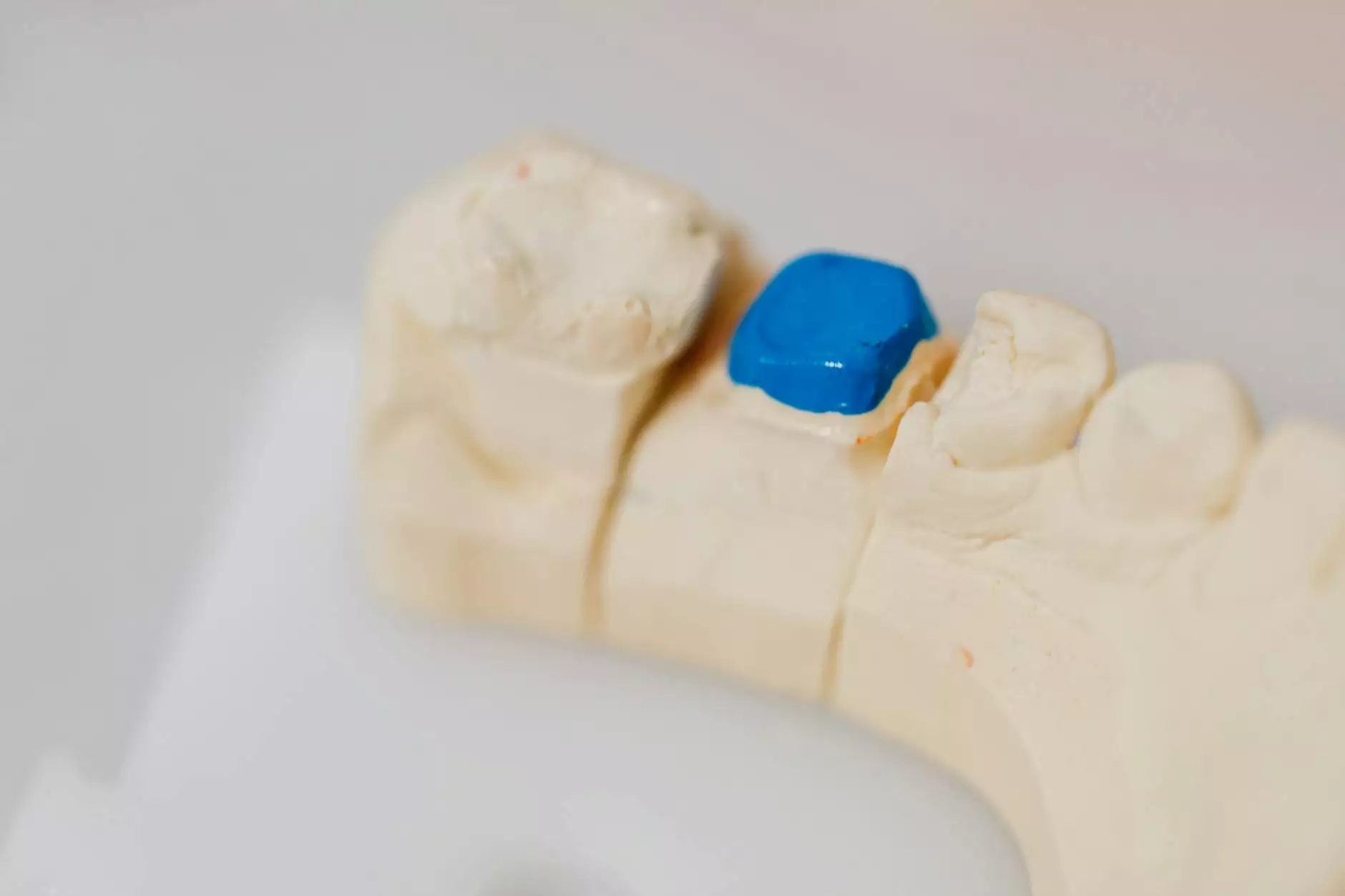Understanding the Importance of Soft Occlusal Guards in Dentistry

The world of dentistry offers a plethora of solutions for various dental issues, one of which is the soft occlusal guard. This article delves into what an occlusal guard is, particularly the soft variety, and discusses its numerous benefits, applications, and significance in dental care.
What is an Occlusal Guard?
An occlusal guard, also commonly referred to as a night guard or dental guard, is a custom-made dental appliance designed to cover the occlusal surfaces of the teeth. The primary purpose is to shield the teeth from the potential damage caused by grinding (bruxism) during sleep or stress. Occlusal guards can be made from various materials, but the soft occlusal guard is particularly popular due to its comfort and effectiveness.
Soft Occlusal Guards vs. Hard Occlusal Guards
When considering occusal guards, it is essential to differentiate between soft and hard variations:
- Soft Occlusal Guards: Made from softer material, these guards are designed for comfort. They provide cushioning for the teeth and are often recommended for those who grind their teeth lightly.
- Hard Occlusal Guards: Constructed from durable acrylic material, these guards are robust and more suitable for severe bruxism cases. They offer less cushioning but provide additional strength to withstand heavy grinding.
Why Choose a Soft Occlusal Guard?
The selection of a soft occlusal guard often comes down to the specific needs of the patient. Here are several reasons why choosing a soft option may be beneficial:
- Comfort: The soft material molds easily to the shape of the teeth and gums, which enhances comfort levels during wear.
- Reduced Discomfort: For individuals experiencing jaw pain or sensitivity, a soft guard can alleviate discomfort while providing adequate protection.
- Ease of Adjustment: Soft guards can be easier to adjust compared to their hard counterparts, making them a suitable option for those new to wearing dental appliances.
- Improved Sleep Quality: Wearing a soft occlusal guard can result in better sleep by minimizing disturbances caused by teeth grinding.
Who Should Consider a Soft Occlusal Guard?
Soft occlusal guards are particularly suitable for various individuals, including:
- Bruxism Sufferers: Those diagnosed with bruxism can benefit significantly from wearing a soft guard at night.
- Individuals with Mild TMJ Disorders: A soft occlusal guard can help alleviate symptoms linked to temporomandibular joint disorders.
- Patients Seeking Comfort: Users who place a premium on comfort while wearing dental appliances will find soft guards advantageous.
How Are Soft Occlusal Guards Made?
The process of creating a soft occlusal guard typically involves several steps:
- Consultation: The dentist will assess the patient's condition, discuss symptoms, and determine if a guard is necessary.
- Impressions: The dentist will take impressions of the patient's teeth to ensure a custom fit.
- Fabrication: The impressions are sent to a dental lab where the occlusal guard is meticulously crafted.
- Fitting: Once the guard is complete, the patient returns to have it fitted. Adjustments are made if necessary to ensure snugness and comfort.
Benefits of Using Soft Occlusal Guards
Using a soft occlusal guard comes with several notable benefits, including:
- Teeth Protection: Prevents dental wear and tear caused by grinding.
- Jaw Pain Relief: Reduces pressure on the jaw joint, alleviating pain associated with jaw disorders.
- Improved Oral Health: Protects against potential cracks and chips in the teeth.
- Custom Fit: Tailored to the individual's mouth structure for optimal comfort and effectiveness.
- Affordable Option: Generally more cost-effective than more complex dental procedures for resolving bruxism.
Maintaining Your Soft Occlusal Guard
To ensure longevity and effectiveness, proper maintenance of a soft occlusal guard is crucial:
- Daily Cleaning: Rinse your guard with water after each use, and brush it gently with a toothbrush and mild soap once daily.
- Storage: Keep the guard in a protective case when not in use to prevent damage or contamination.
- Regular Check-Ups: Schedule regular dental check-ups to monitor the health of your teeth and the condition of your guard.
Common Misconceptions about Soft Occlusal Guards
There are several misconceptions surrounding the use of occlusal guards:
- They're Only for Heavy Grind Patients: Many believe occlusal guards are only necessary for severe cases of bruxism, but even mild grinders can benefit.
- They Are Uncomfortable: While some may find hard guards uncomfortable, many users of soft occlusal guards report high comfort levels.
- Once You Start Wearing One, You Can't Stop: Wearing a guard helps resolve symptoms, and one can stop use once the underlying issues are managed under a dentist's guidance.
Conclusion
A soft occlusal guard serves as an effective solution for many dental concerns, particularly for those struggling with teeth grinding, jaw pain, or TMJ disorders. Its comfort, protective benefits, and ease of use make it an essential tool for maintaining oral health. At Medental SF, we understand the importance of tailored dental solutions and are dedicated to helping our patients achieve optimal oral wellness. If you believe you could benefit from a soft occlusal guard or have any questions, don't hesitate to contact us. Your journey to better oral health starts here!
© 2023 Medental SF. All Rights Reserved.
occlusal guard soft








